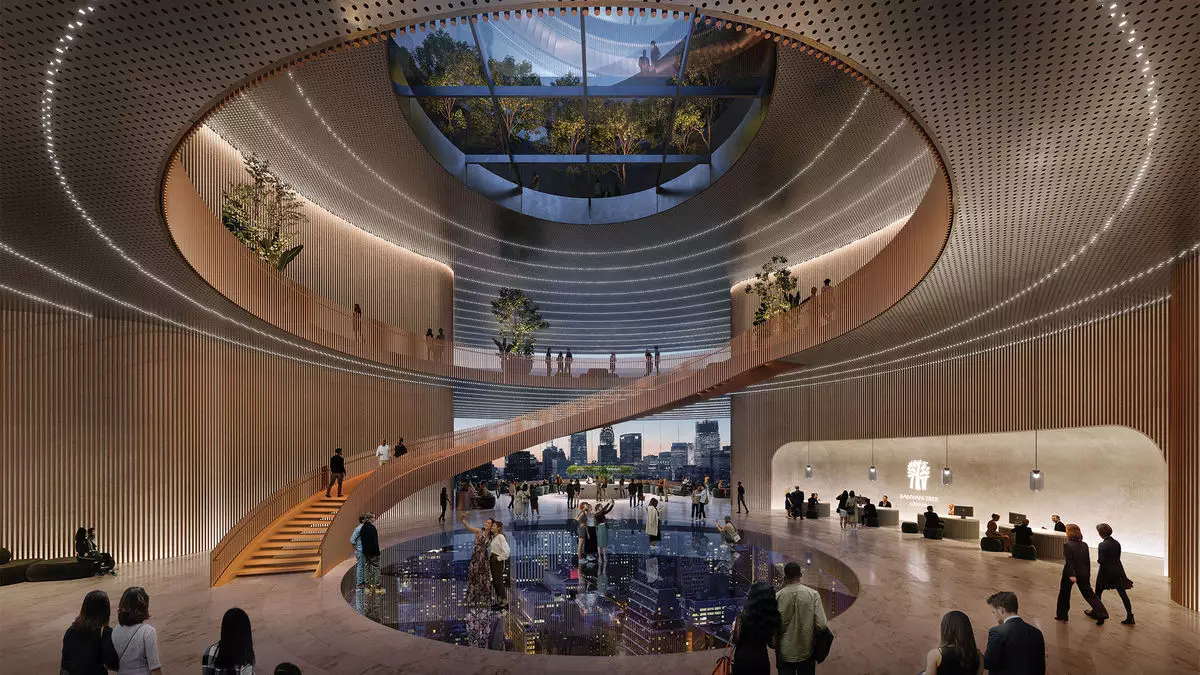The battle for securing one of the three new casino licenses for downstate New York, including New York City and its surrounding areas, has attracted a multitude of prominent players in the gaming, hospitality, and real estate industries. With the New York State Gaming Commission yet to commence the processing of license applications, entities like Banyan Group, Mohegan, and Soloviev Group have already started making their pitches and engaging in lobbying efforts to position themselves as strong contenders.
The most recent entrant into the competition is Banyan Group, the parent company of Banyan Tree and several other hotel brands. Teaming up with Mohegan and Soloviev Group, they have proposed a comprehensive project named Freedom Plaza, situated on six acres on the east side of midtown Manhattan near the United Nations. The project includes a 280,000-square-foot gaming area, 30 dining and entertainment establishments, and two hotels – a 1,000-room property by Mohegan and a luxurious 250-room Banyan Tree hotel, marking the company’s debut in the United States.
Gabriel Gn, Banyan Group’s senior assistant vice president and head of business development, expressed excitement about the opportunity to establish a high-end gaming and hospitality destination in New York City. Drawing from the success of Banyan Tree Macau within a casino-resort complex, Gn envisions creating a premium oasis in New York, emphasizing wellness programming and signature in-room relaxation pools. The goal is to provide a resort-like experience in an urban setting, catering to the discerning clientele frequenting casinos.
Apart from Banyan Group, other major contenders for the casino licenses are Wynn Resorts with Related Companies, Caesars Entertainment with SL Green Realty Corp., Hard Rock International with Steve Cohen, Las Vegas Sands, MGM Resorts International, and Genting Group, each proposing innovative gaming and hospitality concepts in different parts of the metropolitan area. The introduction of these projects could transform the tourism landscape of New York City and its surroundings significantly.
Industry experts like Sean Hennessey foresee a boost in travel activity to New York with the integration of large entertainment and casino complexes. Casinos in the region could potentially divert customers from neighboring destinations like Atlantic City and Connecticut, generating additional revenue for the state. However, concerns remain about the gambling habits of the local population and the potential risks associated with problem gambling, which may require regulatory measures to mitigate.
Kimberly Otis, an associate professor at SUNY Schenectady County Community College, highlights the financial benefits of casinos for New York State through increased tax revenues and job opportunities. While casinos are known to stimulate economic growth, they also come with social challenges related to gambling addiction and other negative impacts on communities. It is essential for policymakers to balance the economic advantages of casinos with measures to address their potential drawbacks effectively.
The competition for casino licenses in New York City represents a pivotal moment in the ongoing evolution of the state’s gaming industry. As established players and newcomers alike seek to leave their mark on the metropolitan landscape, the ultimate winners of the licensing race will shape the future of hospitality and entertainment in one of the world’s most dynamic cities.


Leave a Reply